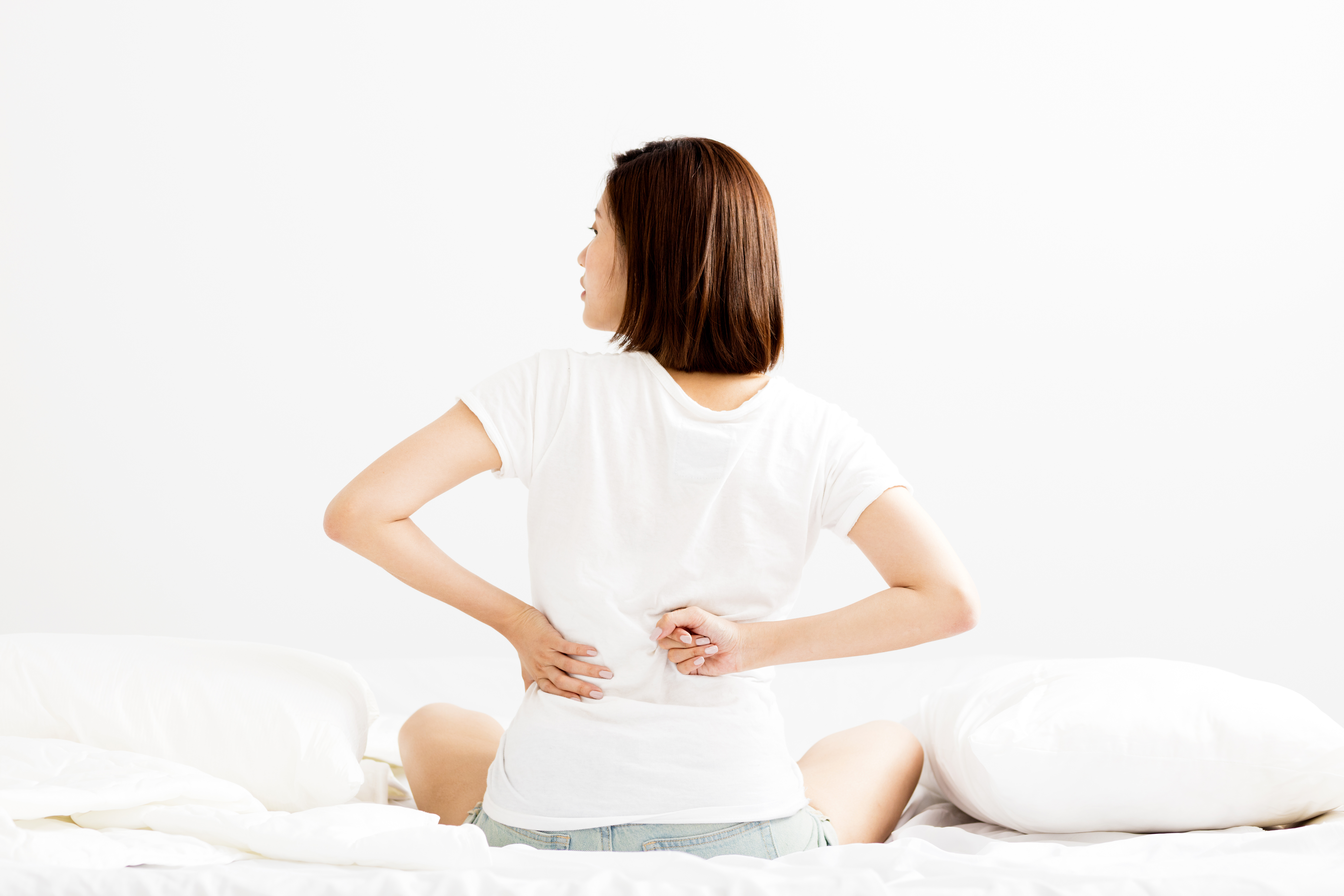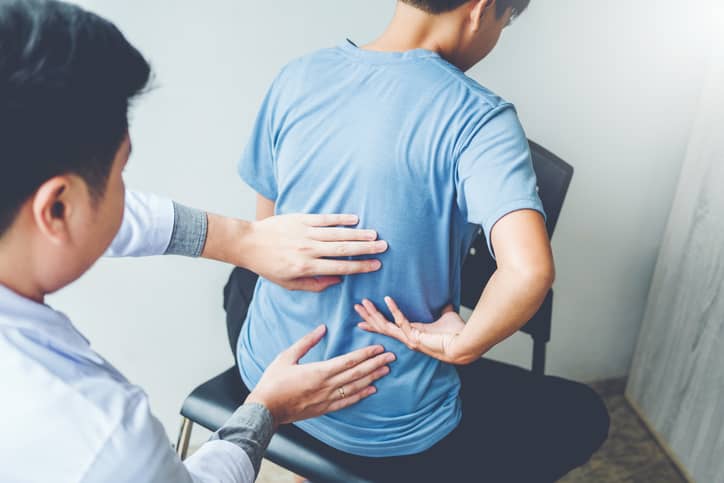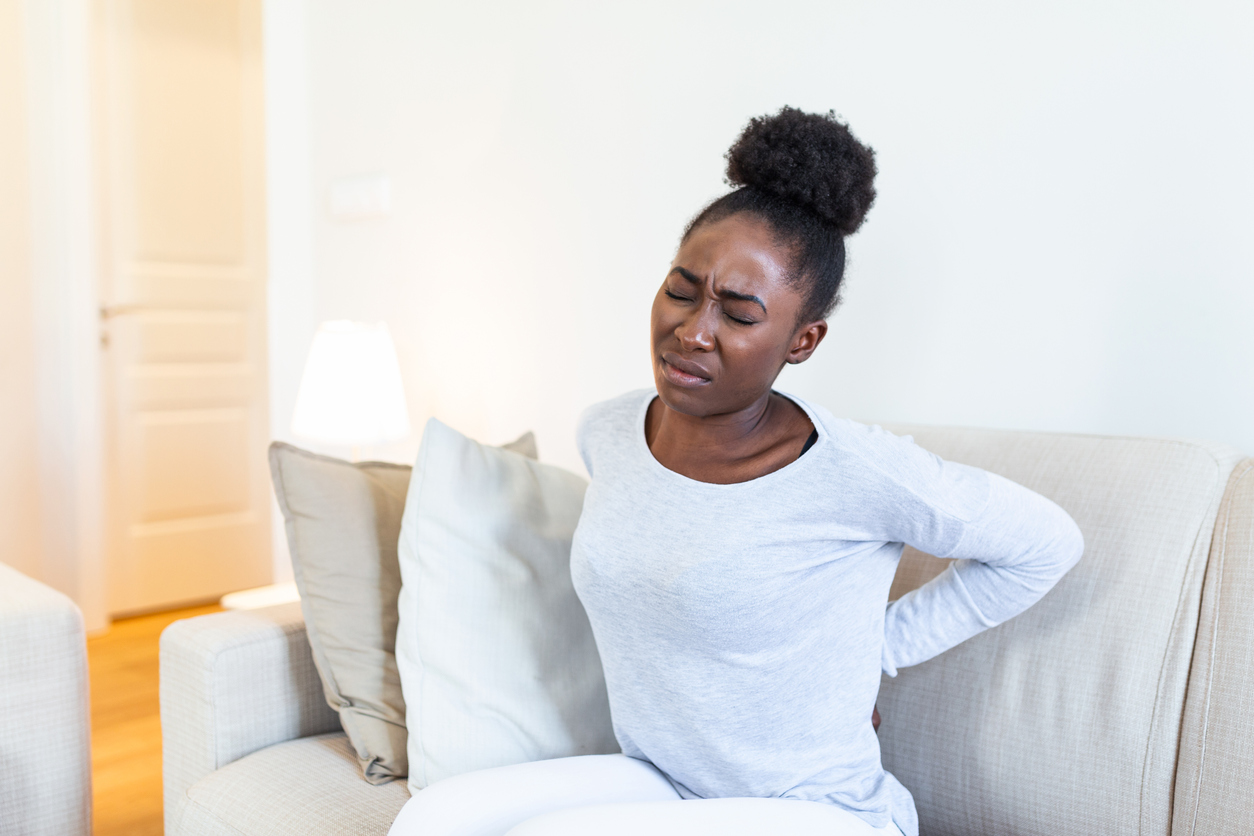Back pain affects between 10% and 15% of the adult population every year and is particularly common in developed countries, where it affects almost a third (30%) of adults.
Doctors may not always be able to identify the cause of your back pain but the majority of cases will resolve themselves over time. A small number of people will go on to develop long-term problems.
Knowing the cause of your pain could help you manage it.
Causes of back pain
Non-specific
Non-specific back pain is the name given to pain that’s not caused by a specific or underlying disease.
It’s usually due to hard physical work, lifting heavy objects, a forceful movement, bending awkwardly, poor posture or standing in 1 position for too long. But it can also be caused by muscle sprain or strain and has been linked to feeling stressed or run down.
Slipped disc
A slipped disc is when a soft cushion of tissue between the bones in your spine is pushed out.
It can happen from exercising too hard, lifting weights the wrong way, being inactive or overweight and getting older.
Slipped bone
A slipped bone (spondylolisthesis) is when 1 of the bones (vertebrae) in your spine slips out of position. It can be this way from birth or develop over time due to injury to the spine, getting older or, very occasionally, a tumour.
The pain will usually be in the lower or mid-to-upper back.
Nerve pain
Nerve pain (sciatica) happens when a nerve that runs from your hip to feet (the sciatic nerve) is irritated. This is most commonly caused by a slipped disc pressing or rubbing on the nerve, but it can also be caused by a bone that has moved out of place (spondylolisthesis) or a back injury.
The pain can also occur in your bottom, back of your legs, feet or toes.

Ankylosing spondylitis
Ankylosing spondylitis is a chronic inflammatory disease that causes your spine to become stiff (spondylitis), possibly due to your genetics.
It causes back pain and stiffness as well as pain in other parts of your body due to inflammation around your joints or tendons.
Over months or years the inflammation damages the spine and can lead to the growth of new bone. In some cases parts of the spine fuse together (ankylosis).
What’s causing my back pain?
For non-specific causes of back pain, it could be worth taking some time to look at your lifestyle and working conditions.
Looking at factors such as your posture or any heavy lifting you’re doing, as well as any potential sprains or whether you’ve been feeling stressed in recent weeks, could help you identify a cause so you can make changes to address it.
For back pain that could be caused by a medical condition, the type of pain you experience and what triggers it may help a doctor to identify the cause.
They may ask the following questions:
1. Does the pain get better with exercise, but worse with rest? Is it also worse in the morning and at night?
These are symptoms of ankylosing spondylitis, which can also cause swelling of the joints in other parts of the body such as your hips or knees.
2. Does the pain get worse with exercise, but better when lying down?
This could be a symptom of a slipped bone (spondylolisthesis).
3. Do you experience tingling or numbness?
This could be a slipped disc or a slipped bone if it’s pressing on the sciatic nerve.

When to see a doctor for back pain
If you’re worried about your pain or are struggling to cope you should see a doctor.
You should also see them if the pain is very strong or getting worse, it’s stopping you from doing your daily activities, or it doesn’t get better within a few weeks.
When to get immediate medical advice
If your back pain started after a serious accident or car crash, or if the pain is coming from the top of your back, between your shoulders, rather than your lower back, you should see a doctor immediately.
Other symptoms are also a sign that you should seek medical care immediately. These include:
- having numbness or tingling around your genitals or buttocks
- difficulty peeing
- losing control of your of bladder or bowel – peeing or pooing yourself
- chest pain
- high temperature
- weight loss
- a swelling or a deformity in your back
- no improvement after resting or the pain worsening at night
- problems sleeping because the pain is so bad
- sneezing, coughing or pooing making the pain worse
It’s unlikely to be anything serious but a doctor may want to examine your back.
Possible treatments for back pain include physiotherapy and osteopathy to massage and manipulate the spine.






